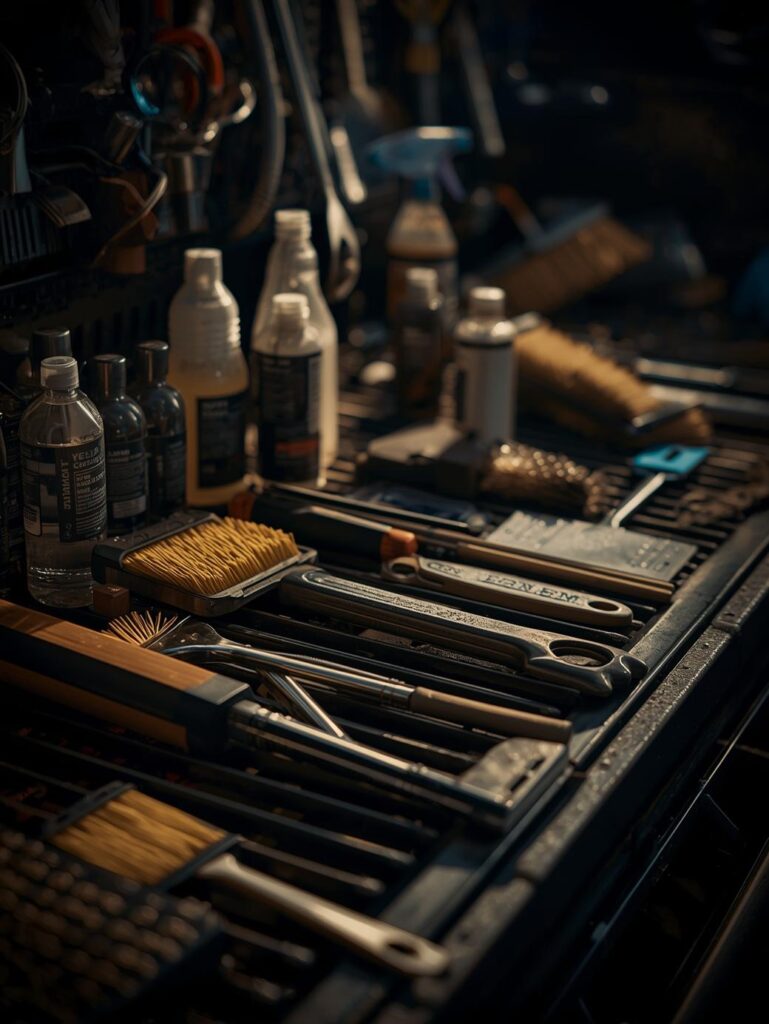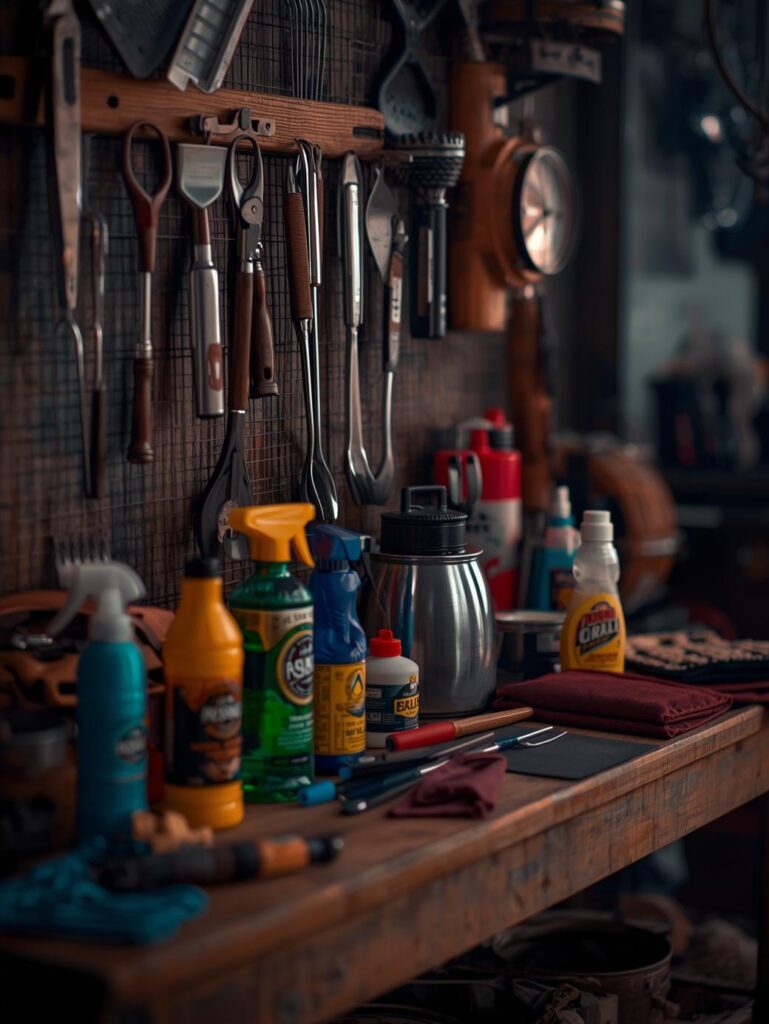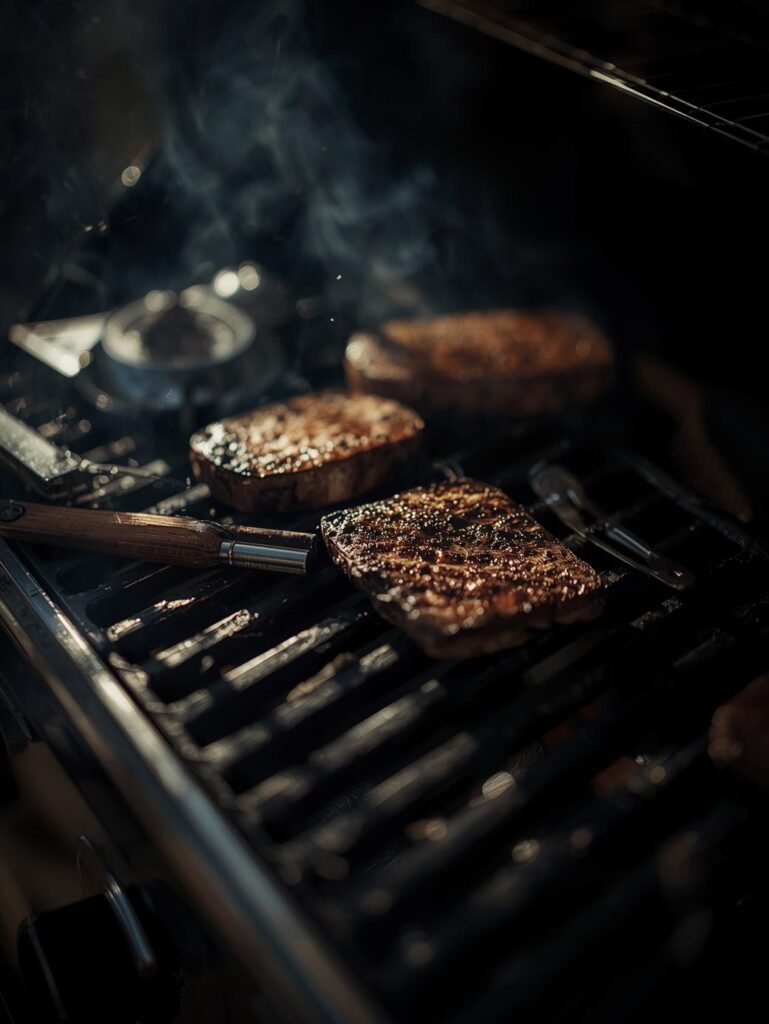Everything You Need to Know About Grill Maintenance
For many of us, a grill is more than just a piece of cooking equipment; it’s the centerpiece of backyard gatherings, a source of delicious food, and an extension of our homes. But like any valued tool, a grill requires proper grill maintenance to perform its best. Skipping this simple task can lead to frustrating cooking experiences, a shorter lifespan for your grill, and even a food safety risk.
This comprehensive guide will walk you through everything you need to know about grill maintenance, from the quick pre-cook routine to a detailed deep cleaning. We’ll cover everything from how to clean grill grates to the specific care required for both gas and charcoal grills. By the end, you’ll have all the knowledge you need to keep your grill in peak condition for years to come.
Why Grill Maintenance is Not Just for Cleanliness
Regular grill care is about more than just having a shiny piece of equipment. It’s about ensuring your food tastes its best and that you’re cooking safely.
- Safety: A build-up of grease and fat can lead to dangerous flare-ups and even grill fires. Regular cleaning removes this risk.
- Performance: A clean grill with properly maintained burners and grates will heat more evenly and reach the correct temperature faster.
- Longevity: Rust and corrosion are the biggest enemies of your grill. Regular maintenance prevents this damage and can extend your grill’s life by years.
- Flavor: Old, charred food particles on your grates will transfer a bitter taste to whatever you’re cooking. Clean grates ensure the true flavor of your food shines through.
The Essential Grill Maintenance Checklist
Think of grill upkeep as a multi-step process. Some steps should be done every time you cook, while others only need to be done once a month or once a season.
Step 1: Pre-Cook Preparation
This is the most basic and most important step in grill maintenance. It only takes a few minutes, but it makes a world of difference.
- Preheat the Grill: Always preheat your grill to high heat for at least 15 minutes. This will loosen up any leftover food particles, making them much easier to scrape off.
- Scrape the Grates: Using a sturdy wire brush, scrape the grates to remove any food residue from the last cook.
- Oil the Grates: Once the grates are clean and hot, use a paper towel soaked in a high-smoke point oil (like canola or vegetable oil) and, using tongs, rub it over the grates. This creates a non-stick barrier that will prevent your food from sticking. This is a crucial step we discuss in our guide, why meat sticks to the grill.
Step 2: Post-Cook Cleaning
While it may be tempting to just turn off the grill and walk away, a few minutes of post-cook grill care can save you a lot of time and effort later.
- Heat the Grill Again: After you’ve removed your food, turn the heat back up to high for a few minutes. This will char any remaining food particles.
- Scrape the Grates Again: Use your wire brush to give the grates one final, thorough scrape. This will remove most of the food residue and prevent it from caking on.
Step 3: Deep Cleaning (Monthly or Quarterly)
A deep clean is a full reset for your grill. It’s a bit more involved, but it’s essential for long-term grill maintenance. The frequency of a deep clean depends on how often you use your grill; once a month for heavy use, once a quarter for regular use.
How to Deep Clean a Gas Grill
- Disconnect the Gas: The most important safety step is to disconnect the gas tank or turn off the gas line.
- Remove the Grates and Flavorizer Bars: Take out the grates and the metal flame guards (flavorizer bars) that sit over the burners. Scrape them clean with a grill brush, and then wash them in hot, soapy water.
- Clean the Burners: Use a dry wire brush or a special grill brush to gently brush the burners to remove any clogged ports. Do not use water or a wet cloth.
- Clean the Inside of the Grill: Use a plastic scraper to remove any caked-on grease and carbon from the inside of the grill lid and the bottom. A grill cleaner spray can help with stubborn spots.
- Clean the Grease Trap: Remove the grease tray and scrape out the hardened grease. Wash it thoroughly in hot, soapy water.
- Reassemble: Once everything is dry, put it all back together.
How to Deep Clean a Charcoal Grill
- Empty the Ash: Make sure the grill is completely cool. Remove the grates and empty the ash from the bottom of the grill.
- Scrape and Wash: Scrape the grates with a grill brush, then wash them in hot, soapy water. For stubborn spots, a grill cleaner spray works wonders.
- Clean the Bowl and Lid: Use a scraper to remove any caked-on carbon and ash from the inside of the grill bowl and the lid. You can use a wet cloth to wipe it clean.
- Season the Grates: Once the grates are completely dry, coat them with a thin layer of cooking oil. This will protect them from rust.
Step 4: Seasonal/Off-Season Care
If you live in a climate with cold winters, properly preparing your grill for storage is one of the most important grill care steps you can take.
- Give It a Final Deep Clean: Do a thorough deep clean of the entire grill, as described in Step 3.
- Protect It: For gas grills, disconnect the gas line and either store the tank separately or cover it with a grill cover. For charcoal grills, make sure the vents are open to prevent moisture from building up inside.
- Use a Grill Cover: A good, water-resistant grill cover is essential for protecting your grill from the elements.

Essential Tools for Grill Maintenance
Having the right tools makes grill maintenance much easier.
- Heavy-Duty Wire Grill Brush: For scraping off tough food residue.
- Grill Scraper: For removing caked-on carbon and grease from the interior.
- Grill Cleaner Spray: A good degreaser will help with tough spots.
- Heat-Resistant Gloves: To protect your hands while working on a hot grill.
- Grill Cover: To protect the grill from the elements.
Following these grill cleaning tips will not only make your grill last longer but also ensure that your food tastes better. A dirty grill can impart a bitter flavor to your food, which is why a well-maintained grill is a secret of a great cook. When you’re dealing with BBQ sauce errors or temperature mistakes, the last thing you want is a dirty grill making things even worse.
Conclusion
Mastering the art of grilling is not just about cooking; it’s also about caring for your equipment. By making grill maintenance a regular part of your routine, you are making an investment in your safety, your food’s flavor, and the longevity of your grill. A clean grill is a happy grill, and a happy grill makes for a very happy cook.
FAQ: Everything You Need to Know About Grill Maintenance
1. What is the best way to clean grill grates?
The best way to clean grill grates is to preheat your grill to high heat, scrape the grates with a wire brush, and then oil them. For a deeper clean, remove the grates and wash them in hot, soapy water.
2. How often should I perform grill maintenance?
You should clean your grates before and after every cook. A deep clean should be done at least once a month for heavy users and once a quarter for a regular user. Seasonal care should be done once a year.
3. What kind of tools do I need for grill maintenance?
The essential tools you need are a heavy-duty wire brush, a grill scraper, a grill cleaner spray, and a good grill cover.
4. What is the most important step in grill care?
The most important step is to preheat your grill before you cook. This will loosen up any food residue and make it much easier to clean. It also prevents your food from sticking.
5. Can I use a grill cover?
Yes, you should use a grill cover. A good grill cover will protect your grill from the elements and extend its lifespan.
6. How can I remove stubborn grease from the grill lid?
To remove stubborn grease, use a grill scraper to scrape off the caked-on carbon and grease. You can also use a grill cleaner spray to help with tough spots.
7. Is it safe to use a wire brush?
Yes, it is safe to use a wire brush. However, you should always inspect the brush for any loose bristles before and after each use to ensure none have broken off and stuck to the grates.



